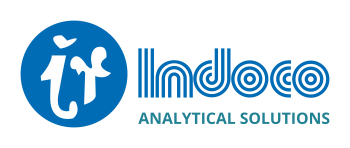The risk analysis is a preliminary quantitative and qualitative process that evaluates the potential risk associated with the drug before administration. The benefit of the drug analysis has to overcome the risk assessment factor to be administered to the patient for its safety. When the drug is prescribed, the medical professional examines all the possible benefits and risks associated with the drug before it is administered to the individual patient. It helps to work out all the possibilities of how the drug actually enhances its therapeutic efficacy with respect to the severity and probability of hazardous implications. Hence risk evaluation in drug analysis is the process of identifying and analysing potential risks that can negatively impact the process route in the development of the drug and help to mitigate those risks.
Indoco Analytical solutions provide high quality analytical services relating to integrated solutions with analytical and chemistry based approach to many pharmaceutical organisations.
There are many challenges in the drug development process that can give unresolved pathological analysis especially in identifying the target disease organ and to assess the risk evaluation and optimization of the process to mitigate the risk and increase the safety and efficacy of the product. It can authenticate various degrees of process generation and integration.
Indoco analytical services provide various ranges of offerings with respect to their product development and delivery. With efficient and skilled workforce they provide excellent services in the management of drug analysis to facilitate risk control schemes for developing safer drugs.
Indoco drug analysis services include many drug analysis that involve extractable and leachable studies, elemental analysis, analytical method development, polymorphism studies, nitrosamine impurity analysis, impurity identification, characterization and isolation, forced degradation and physicochemical studies and genotoxic evaluation and studies. In line with the advancements in the biotechnological tools such as in silico, in vitro and in vivo testing it has become easier to use different drug modalities to mitigate and refine the risk factor. This has enhanced specificity and selectivity in identifying the potential risk during drug analysis for the target safety assessment and toxicological analysis.
Improved governance, methodology and standards in the pharmaceutical organizations can facilitate drug discovery and development programs.
Following are the industrial methods of risk management programme that involves basic risk management facilitation methods with flowcharts and spreadsheets, analysis of the failure effects and understanding critical analytical procedures, fault Tree Analysis (FTA), hazard Analysis and critical control strategies, product quality analysis.
Risk management should follow the basic protocols for authenticating the route process development method by learning and interpreting about the product’s benefits and risks, designing and implementing interventions to minimize a product’s risks, evaluating and revising the interventions periodically, providing risk management strategy, risk identification and evaluation techniques. The assessment of the risk associated with the project enables us to understand the mitigation requirements, project liabilities and decision making, which eventually improves team management and responsibilities.





